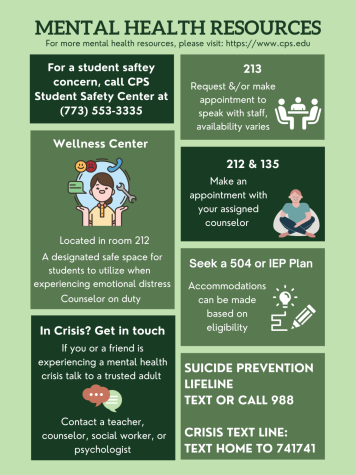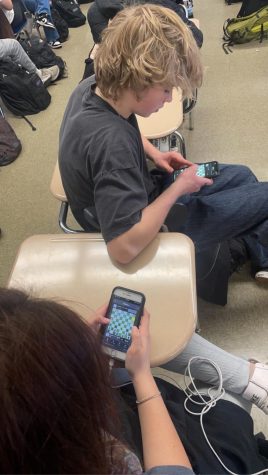The psychology of presenting
February 15, 2018
She sat in her seat trying to get through the school day. Everything was going well until her teacher started to call on students at random. Her heart began to race and she avoided eye contact with her teacher.
The student, a current junior, started to repeat what she was going to say over and over again in her head so she would feel prepared. She did not want to be called upon. She thought to herself, “If I didn’t raise my hand I obviously don’t know the answer, so why purposely single people out?”
Ms. Gilson, Lane’s school psychologist, has worked with many students that experience social anxiety.
“Just as there are many ways to study as students, there are many ways to teach as teachers,” Gilson said. “It’s not just a science, it’s an art too.”
There are many factors that go into a teacher’s decision to call upon students at random, according to Gilson. A teacher may want their students’ knowledge base to be automatic, to check if students are doing their readings, or to motivate students to be prepared for their class, Gilson said.
Mr. Parsons, an AP psychology teacher, is known for calling on students at random.
“I call on students at random, because as a teacher I have a responsibility to make sure all my students are learning,” Parsons said. “Sometimes classes are dominated by the same students who like to talk. I want to make sure all my students feel like they are part of the class, that they are smart and that they have a voice.”
There are multiple reasons as to why some people feel nervous in situations such as having to answer an unexpected question.
“Just as there are many ways to study as students, there are many ways to teach as teachers. It’s not just a science, it’s an art too.” — Dr. Gilson, school psychologist
“That activity of being called upon plays into a person’s core fear,” Gilson said. “Their core fear may be being exposed or found out about. Maybe they’re afraid of being embarrassed or humiliated. Maybe they have a fear of being seen and the attention that being called upon [might bring].”
According to Gilson, there are many ways a student can handle this fear. One of them includes talking to the teacher and creating a plan with them. Another option is talking to Mr. Cox, Lane’s social worker, your counselor or meeting up with Gilson herself. Sharing your emotions can begin the journey of overcoming this social anxiety.
“I think for some students with mild to moderate anxiety, being called upon and finding out that you’re OK, that you can be confronted, and that you can persevere can be wonderfully curative,” Gilson said.
The University of Pittsburgh has reported that speech anxiety is at its strongest before and during the beginning of presenting, but decreases soon after that.
If the anxiety doesn’t decrease, is too debilitating and is stopping a student from achieving their best, they may be eligible to receive an accommodation plan, such as a 504, according to Gilson. Accommodation plans are meant to help people better manage intense anxiety and control the way triggers are presented to them throughout the day.
“We have over four hundred 504 plans here at Lane,” Gilson said. “Some are for medical conditions. Some are for psychiatric or psychological conditions.”
One student – who chose not to be named – has a 504 accommodation plan for both physical and emotional conditions.
“I believe that it is very important for your teachers to be aware if you struggle with emotional problems because I’m assuming most would respect that and try to help you,” the student said. “[Most] of the teachers at Lane are very understanding and I’m sure they’d try to help you out.”
According to Gilson, the social anxiety some students have can be managed if the students realize that they can control it.
“Students have more power than they realize,” Gilson said. “Having a fear, everyone has fears, but what are you going to do about it?”






